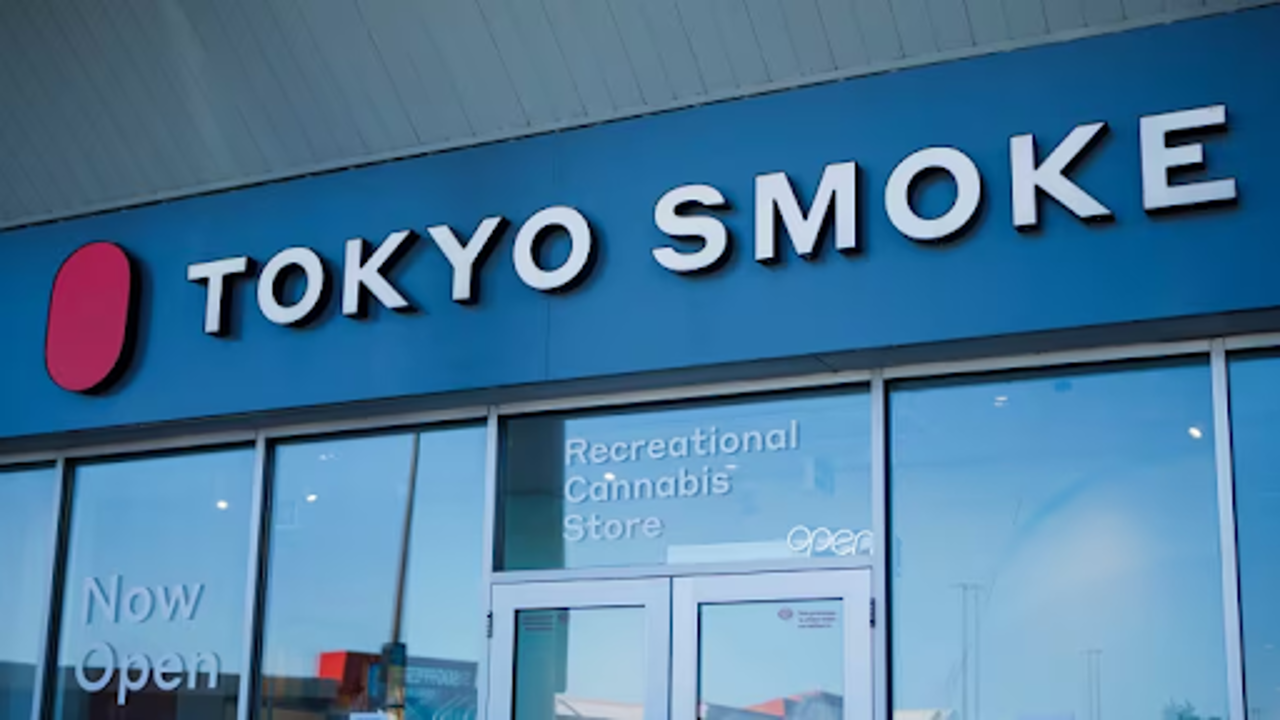
A Tokyo Smoke store in Toronto, photographed on August 29, is the latest Canadian cannabis retailer to shut down some of its locations and file for creditor protection. The industry faces challenges, including an oversaturation of stores, high operational costs, and extremely low retail prices.
Tokyo Smoke, a well-known Canadian cannabis retailer, is the latest in the industry to struggle amid tough market conditions. The company recently announced the closure of 29 stores and is seeking creditor protection under the Companies Creditors Arrangement Act, a move that reflects the challenges facing the cannabis industry in Canada. Despite these setbacks, Tokyo Smoke will continue operating 167 stores across four provinces.
This news comes as no surprise to many within the industry, as the cannabis market has been in turmoil for some time. Matt Maurer, a partner and chair of the Cannabis Law Group at Torkin Manes LLP, noted that while some may be surprised by Tokyo Smoke's situation, those familiar with the industry recognize the difficulties facing cannabis retailers. Since the legalization of cannabis in 2018, many companies have struggled with oversaturated markets, high operating costs, and persistently low retail prices.
Ontario, Canada’s largest regulated cannabis market, has seen rapid expansion since the retail market opened. However, this growth has led to intense competition, with many retailers rushing to establish themselves in the market. Unfortunately, this expansion has also led to numerous businesses facing financial difficulties, unable to keep up with the competition and the ongoing challenges posed by the black market.
The illegal cannabis market remains a significant issue for licensed retailers. According to Bloomberg analyst Duncan Fox, the illicit market continues to thrive, making it difficult for legal retailers to raise prices and maintain profitability. Tokyo Smoke's recent filing highlighted the impact of the black market on its revenue, with the company noting that it has disproportionately affected licensed retailers.
Retail prices for legal cannabis products have dropped nearly 30% since 2018 due to market saturation, creating a tough environment for producers trying to maintain sales and profitability. Although the Canadian cannabis market is expected to grow modestly, with new products like vapes, edibles, and beverages contributing to this growth, the overall outlook remains challenging.
Ontario's shift from a lottery system for cannabis retailers in 2018 to an open-market system in 2020 has led to an oversupply of stores, further exacerbating the challenges facing the industry. Many businesses overpaid for leases in a rush to enter the market, only to find themselves competing with numerous other retailers nearby.
Despite the current difficulties, some industry insiders remain optimistic about the future of cannabis in Canada and beyond. Longtime cannabis advocate Neev Tapiero believes that the industry is still in better shape than the illegal market and that there is progress being made. He also suggests that Canada’s experience with cannabis legalization could serve as a model for other countries considering similar moves.
As the industry continues to evolve, Tapiero predicts that major corporations like Budweiser or Marlboro may eventually enter the market, leading to another boom. However, until then, the cannabis industry in Canada will likely continue to face significant challenges.















